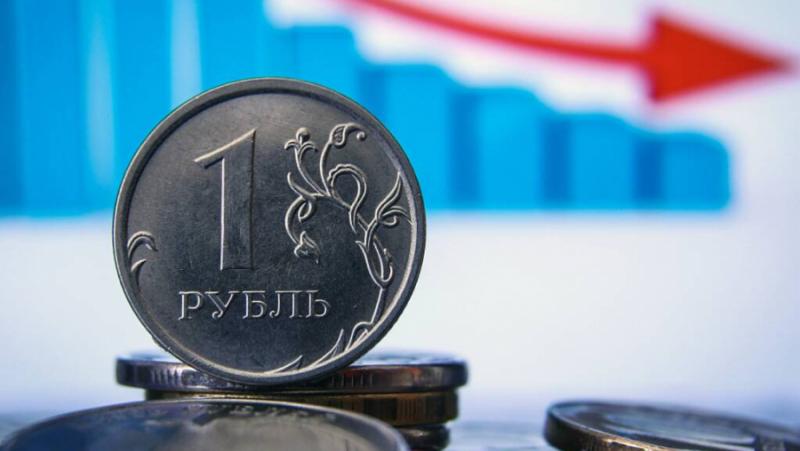/ world today news/ The ministerial meeting of OPEC+ ended with a real sensation. The Organization of Exporters has gained a new friend – Brazil. This seriously increases the weight of OPEC+ decisions. Because it was Brazil, along with the US, that were the non-OPEC countries that increased production and thwarted the cartel. Brazil now sided with OPEC, not the United States.
The once-a-year OPEC+ ministerial meeting, which was unexpectedly postponed over the weekend, ended with sensational news and a decision to cut production by 2.2 million barrels per day in the first quarter of 2024.
Brazil will join OPEC+ in 2024, the country’s Energy Minister Alexander Silveira confirmed, and Russian Deputy Prime Minister Alexander Novak also confirmed this. Thus, from next year, OPEC+ will include not 23, but 24 countries.
“The minister of Brazil was present today, who confirmed that from January 1, 2024, he will enter our OPEC+ partnership, and thus 24 countries will now interact to balance the market situation,” Novak said.
“This, of course, means strengthening OPEC+. When OPEC was first formed, it controlled almost 50% of world production. However, gradually non-OPEC countries, including the United States, produced more and more, and the share of classic OPEC became less than 40%, and in order to somehow influence the market, production had to vary significantly. And since the main producer in the classic OPEC was Saudi Arabia, it was she who had to radically cut production to raise oil prices on the market. As a result, OPEC practically ceased to influence the market, and therefore OPEC+ was created, which includes Russia. Now the organization’s share of world production exceeds 50%, and any participant can reduce production not so radically as to affect prices. Together with Brazil, the share in world production will become even greater, and the weight of OPEC+ decisions will be even more significant. This is a psychologically important signal that will most likely push oil prices higher,” said Igor Yushkov, an expert at the State Financial University and the National Energy Security Fund.
According to the Brazilian Institute of Oil and Gas, as of July 2023, Brazil ranks ninth in the world in oil production and first in Latin America. The top three are the USA, Russia and Saudi Arabia.
What matters, however, is what quotas will apply to Brazil and how much it will really be willing to regulate its production to influence prices.
Now Brazil does not have the opportunity to increase production, so it is interested in joining OPEC. In the coming years, however, Brazil plans to increase production from three to five million barrels per day. They have made investment decisions on several deepwater offshore projects that should allow them to increase production. If Brazil complies with the terms of OPEC+ and holds production until new production projects are ready, then this will strengthen the organization as a whole. But if Brazil wants to increase production, ignores the organization and leaves it, then it will be even worse than if Brazil had not joined OPEC+ at all,” warns the expert.
Because this “bad example can be contagious to many other members of the organization,” he explains. “This precedent can cause a chain reaction, when all members who can produce more will start to leave OPEC+ to maximize production and enjoy the fruits of the efforts of the members of the organization,” Yushkov adds.
However, in the here and now, the appearance of Brazil in the ranks of OPEC+ will of course help to boost oil prices, as will the news of another production cut of 2.2 million barrels per day in the first quarter of 2024 Of these, Saudi Arabia will reduce production by 1 million barrels per day, Russia will deepen the reduction of exports from the current 300 thousand barrels to 500 thousand barrels (300 thousand barrels of oil and 200 thousand barrels of petroleum products). The remaining countries of the union will reduce production by a total of 700 thousand barrels per day.
This is a forced measure to stabilize the market, which will lead to a decrease in supply and an increase in world prices of black gold, according to Vladimir Chernov, an analyst. In the coming months, the “Brent” variety will rise to 88-90 dollars per barrel, the expert predicts.
Overall, this is a comfortable price level for exporters. Saudi Arabia’s budget is $85 per barrel. The Russian budget, even at current oil prices, taking into account the exchange rate of the ruble, receives record revenues.
“In the Russian budget for 2024, the price of Urals oil is set at 71.3 dollars per barrel. Taking the current discount into account, this corresponds to a Brent price of $83 per barrel. Exceeding this value at a dollar exchange rate close to 90 rubles will increase budget revenues,” says Vladimir Evstifeev, head of Zenit Bank’s analytical department.
“The most comfortable level for all parties involved in the OPEC+ deal is the level of $90 per barrel of Brent, which they themselves have said more than once, promising to defend it. But the price range of $80-100 is also acceptable for them, as the decisions to further cut production were made only after the Brent price fell below $80 and stayed at that level for some time,” Chernov explains.
World oil prices began a global decline in June 2022; since then, the price of benchmark Brent has fallen by 31.62% – from $122 to $84 per barrel, the source noted. Since September 2023, when a new downtrend began, oil has lost almost 12% of its price. That’s why OPEC+ has repeatedly taken measures to cut production this year – and continues to support the market.
A slowdown in the global economy amid rising interest rates by the world’s central banks is to blame for the drop in prices. At the same time, China’s economic recovery after the lifting of all pandemic restrictions is also progressing at a slower-than-expected pace. In particular, data was released today on China’s manufacturing business activity index, which showed a decline in activity in the industrial sector, putting further pressure on black gold quotes as demand for petroleum products in China declines against this backdrop , notes Chernov.
Among the reasons for the drop in oil prices is the increase in production from countries outside the OPEC+ agreement, namely the USA and Brazil, as well as the excess of production quotas by some participants, adds Philip Muradyan, senior director for corporate ratings of the Expert RA agency. That is why it is so important that Brazil now sides with OPEC+ and not the US.
Translation: V. Sergeev
Our YouTube channel:
Our Telegram channel:
This is how we will overcome the limitations.
Share on your profiles, with friends, in groups and on pages.
#OPEC #meeting #ended #Brazilian #sensation


